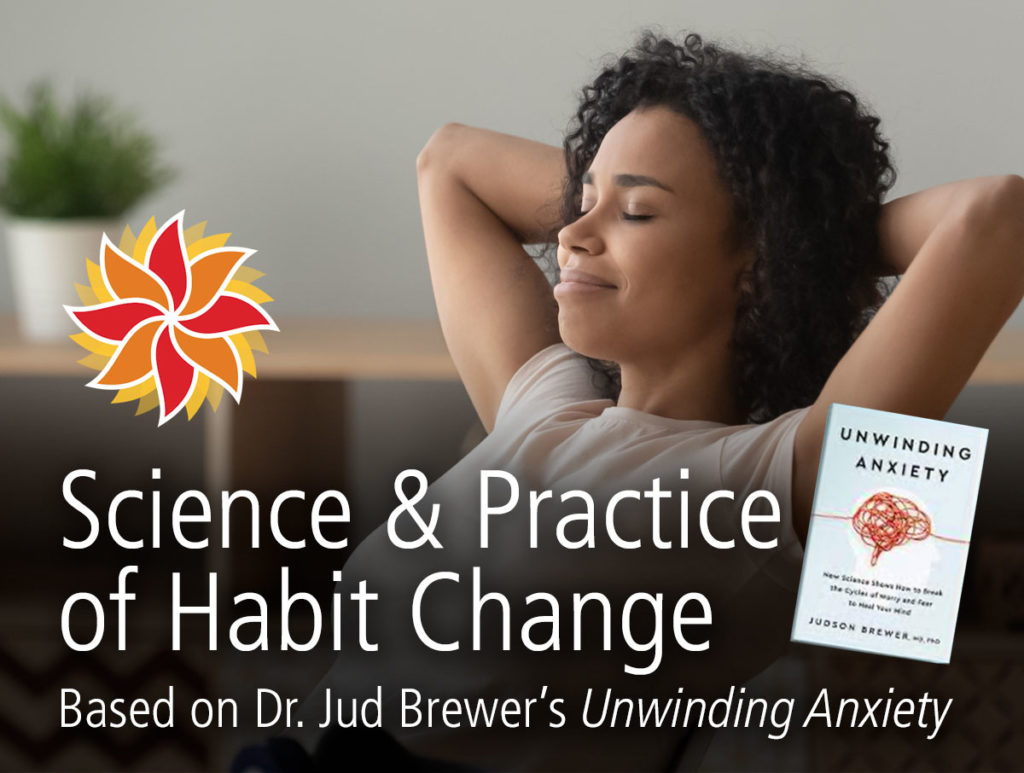
Registration open through April 19, 2024
Orientation and 8 weeks
LOCATION: Live Online via Zoom
TUESDAYS from 7-8:30 pm (EASTERN TIME) convert to my timezone
ORIENTATION: April 22, CLASSES: April 23 to June 11, 2024
Dates, Times, and Pricing Details
Payment plans are available at checkout.

LOCATION: Live Online via Zoom
ORIENTATION: April 22 from 7-8:30 pm (EASTERN TIME)
PROGRAM DATES: April 23, 30, May 7, 14, 21, 28, June 4, and 11
PROGRAM TIME: 7-8:30 pm (EASTERN TIME) convert to my timezone
Please note, there is no program session April 16
Program pricing is set to allow for generosity while meeting individuals needs. Program prices include Pay-It-Forward, Standard, and Scholarship rates. We encourage you to pay as much as you can afford and we appreciate your care and thoughtfulness when deciding. See our refund policy.
More About Pricing
Pay-It-Forward: This is an opportunity to support those less fortunate, making programs accessible to those that cannot pay the standard rate. Paying at this level is an act of generosity.
Standard Rate: The standard rate covers the costs of these programs, making it possible for MHI to continue to offer them.
Scholarship Rate: This rate is available for those who cannot afford to pay the standard rate. We ask you to use this rate only if paying the higher rate creates a hardship for yourself and/or your family.
The Science And Practice Of Mindful Habit Change combines mindfulness training with the identification of long standing habits to promote living more intentionally. This program is based on the app and corresponding book Unwinding Anxiety, the work of Judson Brewer, MD PHD, Director of Research and Innovation at Brown University Center for Mindfulness School of Public Health. Dr. Brewer’s work created a ground-breaking, evidence-based method of habit change which engages the brain’s inherent, reward-based learning system.
More About the Program
In accordance with the latest neuroscience, change is not dependent on harsh self-discipline, but rather enlists the brain as an ally in moving toward behaviors that are intrinsically healthy and rewarding. With guidance and group support, this class will help you learn how to short circuit habit loops and instead nurture more purposeful and constructive ways of being.
The program consists of 13.5 hours of direct instruction, including:
- Orientation (1.5 hours) scheduled one or two weeks before the first class
- 8 weekly classes, 1.5 hours each
- Daily home practice assignments (~15-20 minutes each day)
Required Course Materials
Either the Unwinding Anxiety App or the Unwinding Anxiety book** as a source for material, purchased separately.
**Note: The audiobook is not recommended for this class.
Who is this for?
This course is intended for those looking to make positive changes in their habits and to transform their lives. It’s suitable for you if:
- You are new to mindfulness and want to explore its benefits.
- You’ve made previous attempts to change your habits but encountered challenges along the way.
- You’re falling back into old patterns despite your best efforts.
- You’re determined to make a lasting change and are seeking evidence-based strategies to finally succeed in transforming your habits.
Whether you’re working to improve your health, increase your productivity, or enhance your overall well-being, this course provides the knowledge and tools to help you make lasting changes.
About the Instructor

Certified MBSR instructor
Certified addictions counselor
Mindfulness-based relapse prevention training
Qualified behavior change community facilitator
Science and Research on Habit Change
Studies have found that the strategies employed in the Unwinding Anxiety app increases interoceptive awareness, improves emotional regulation, and decreases worry and reduces anxiety 1, 2, 3. Additionally, applying the concepts and principles taught in the “Unwindity Anxiety” app has been demonstrated to effectively mitigate and address maladaptive eating behaviors 4. The practice of cultivating non-judgmental awareness of the present moment, known as mindfulness, is a key strategy in the app and is a key aspect of this training. By being mindful of habits (i.e. the awareness of thoughts, emotions and physical sensations as they are occurring when one is caught up in anxiety, worry, depression, etc. and the conditioned patterns that ensue), it’s possible to gain insight into conditioned patterns of behavior 5. This heightened awareness is a powerful tool that participants can utilize to break free from harmful, reactive, and habitual behaviors and, instead, enable choices that are conscious and constructive.
Sources Cited
- Nardi, W., Roy, A., Dunsiger, S., & Brewer, J. (2022). Analyzing the Impact of Mobile App Engagement on Mental Health Outcomes: Secondary Analysis of the Unwinding Anxiety Program. Journal of Medical Internet Research, 24(8). https://doi.org/10.2196/33696
- Roy, A., Hoge, E. A., Abrante, P, Drucker, S., Liu, T., & Brewer, J. A. (2021). Clinical Efficacy and Psychological Mechanisms of an App-Based Digital Therapeutic for Generalized Anxiety Disorder: Randomized Controlled Trial. J Med Internet Research, 23(12). https://doi.org/10.2196/26987
- Roy, A., Druker, S., Hoge, E. A., & Brewer, J. A. (2020). Physician Anxiety and Burnout: Symptom Correlates and a Prospective Pilot Study of App-Delivered Mindfulness Training. JMIR Mhealth Uhealth, 8(4). https://doi.org/10.2196%2F15608
- Taylor, V. A., Moseley, I., Sun, S., Smith, R., Roy, A., et al. (2021). Awareness drives changes in reward value which predict eating behavior change: Probing reinforcement learning using experience sampling from mobile mindfulness training for maladaptive eating. J Behav Addict, 10(3): 482-497. https://doi.org/10.1556/2006.2021.00020
- Brewer, J. (2021). Unwinding Anxiety: New Science Shows How to Break the Cycles of Worry and Fear to Heal Your Mind. New York: Avery.
Learning Objectives and Outcomes
- Discuss what mindfulness is and is not from a theory- and evidence-based perspective
- Discuss the relationship between mindfulness and habit formation
- Discuss the relationship between mindfulness and behavior change strategies
- Discuss the empirical evidence of mindfulness and habit change
- Identify where and when formal meditation practices and informal practices can be implemented in daily life
- Employ mindfulness practices, such as body scan, focused attention, mindful movement, and loving-kindness meditations that support habit formation and behavior change strategies
- Employ informal mindfulness practices, including intentional pausing, to initiate present moment awareness in daily life
- Discuss how thoughts and core beliefs influence the habit formation process
- Explain how habitual responses can impair emotional and physical wellbeing
- Utilize mindfulness to become aware of triggered and reactive states, including what triggers a habitual response
- Identify and reflect on recurring, repetitive thoughts and emotions to determine how they affect overall health and well-being in short and long-term circumstances
- Create “mind maps” to discover and explore response to personal triggers
- Utilize mindfulness to compassionately challenge urges and cravings
- Discuss how to short-circuit habitual responses through re-establishing new, more adaptive patterns
- Utilize mindfulness to initiate intentional pausing to discover the possibility of making different choice
Join us to explore how mindfulness may support you in living life more fully, with greater ease and joy.
Please visit our FAQ webpage for answers to our most frequently asked questions.
